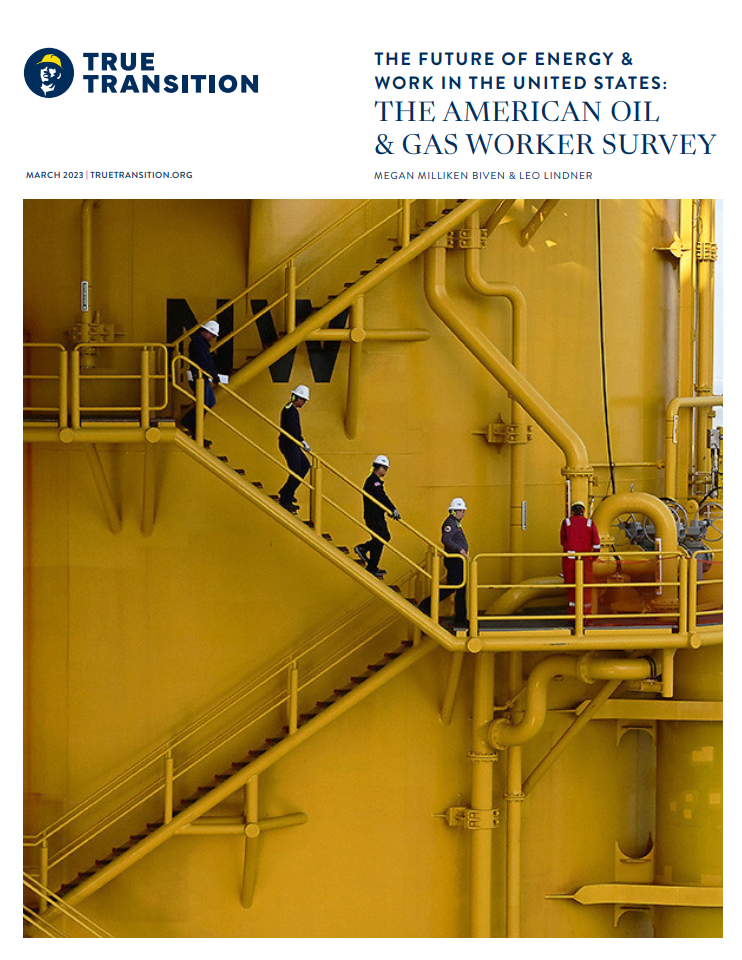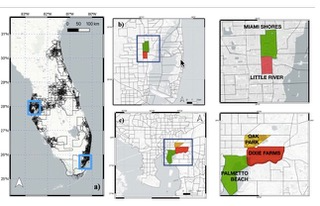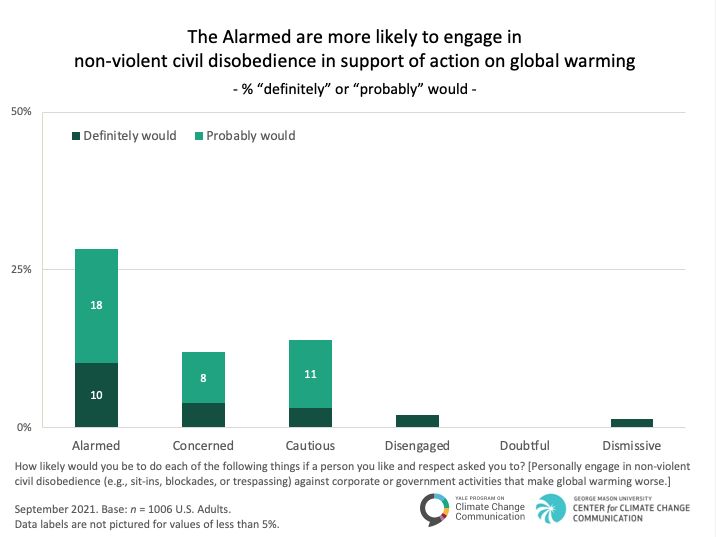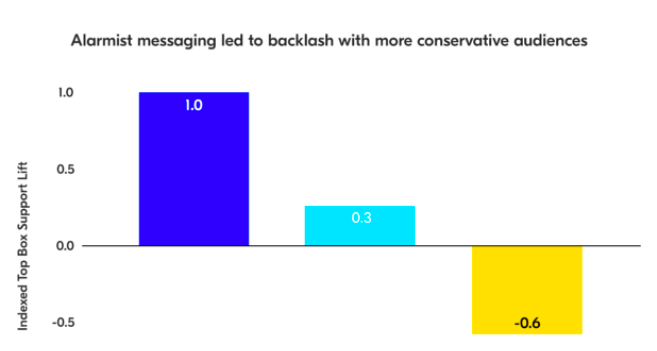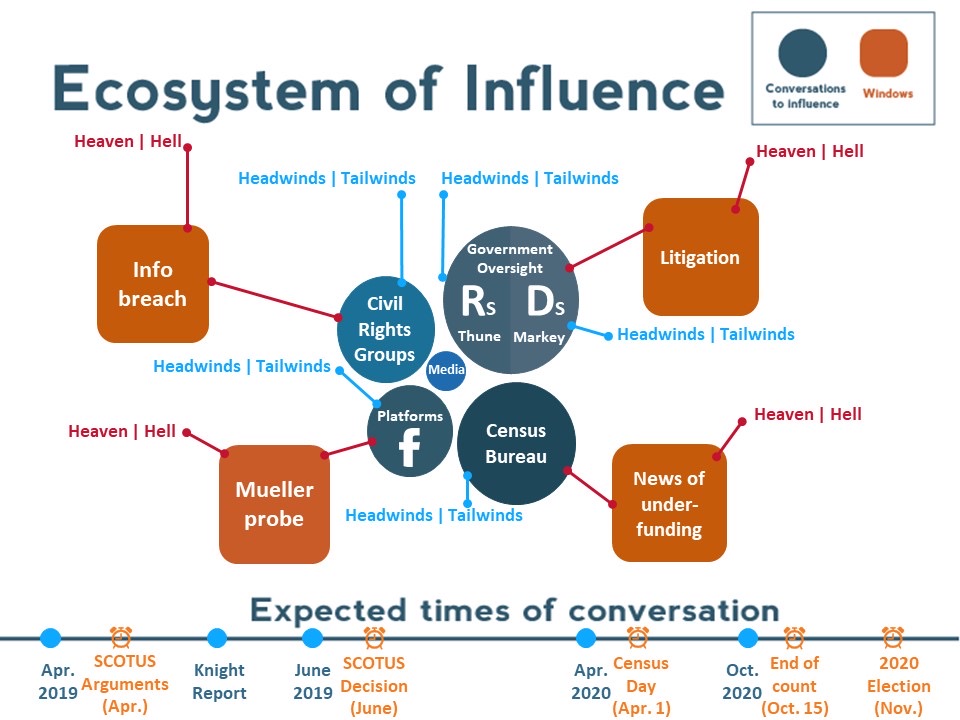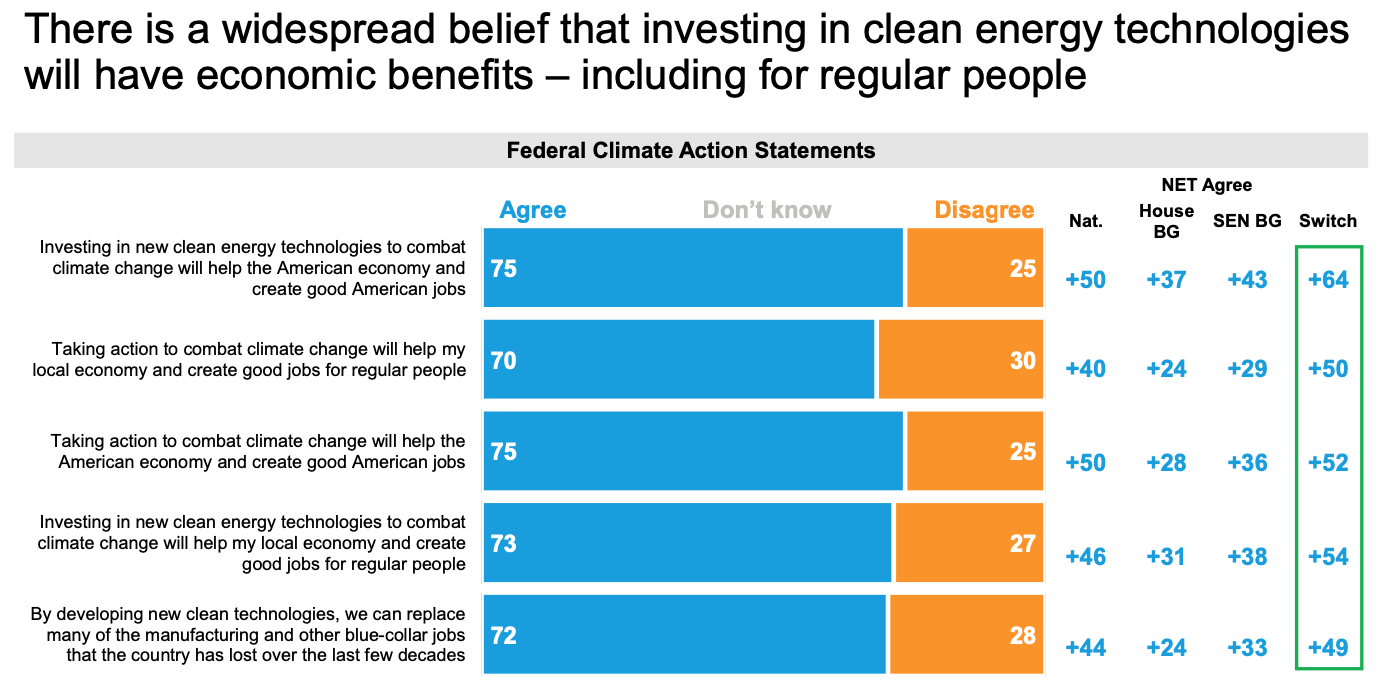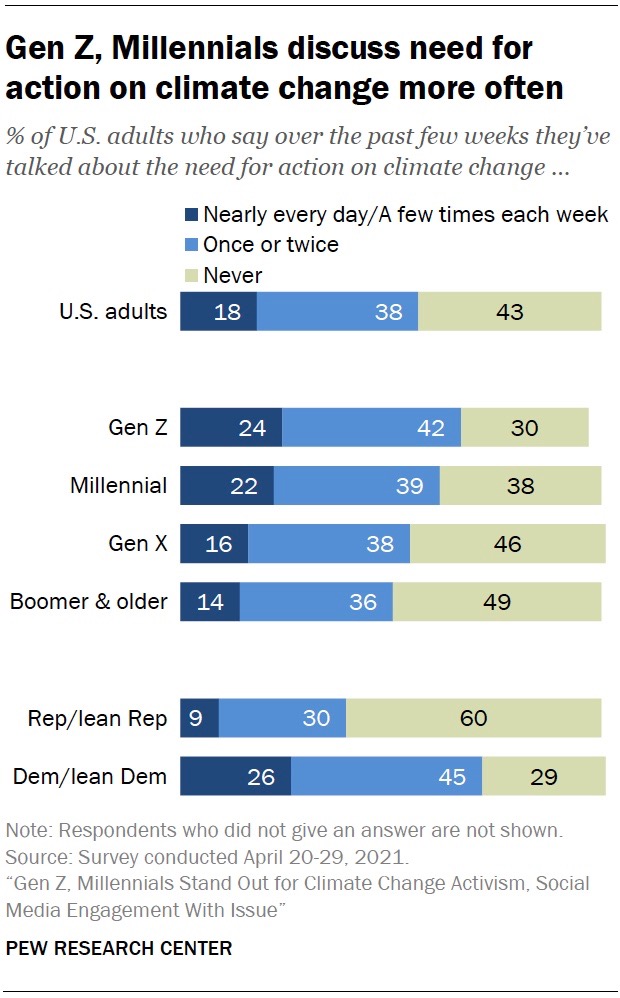Resources
Search below for resources covering the intersection of climate engagement, social science and data analytics.
RESULTS
Transforming the Rural Narrative on Climate Solutions
Join the Rural Climate Partnership for a presentation on how we can use a benefits-forward narrative strategy to connect with rural people. Together, we'll explore 5 narrative keys that allow communicators to reach across cultural differences and avoid culture war frames to connect on shared values.
The Future of Energy & Work in the United States: The American Oil & Gas Worker Survey
Cross sectional survey of 1,635 non-management oil and gas workers in the US revealed new insights and key themes relevant to a truly "just transition" from fossil fuels, including:
Measuring, mapping, and anticipating climate gentrification in Florida: Miami and Tampa case studies
Recognize the disruptive potential of climate gentrification. This study looks at the current and potential impact of climate gentrification on low- and middle-income renters in Miami and Tampa, as areas away from the immediate coast become more desirable due to a growing awareness of climate risks. The authors have created a Climate Gentrification Risk Index to help local officials identify areas vulnerable to climate gentrification and plan for long-term land use changes.
Poll: Who is willing to participate in non-violent civil disobedience for the climate?
A recent survey that asked Americans about their willingness to "support an organization engaging in non-violent civil disobedience against corporate or government activities that make global warming worse" and about their willingness to "personally engage in such non-violent civil disobedience themselves" found:
- Among the Six Americas segments, the Alarmed are the most likely to support an organization engaging in non-violent civil disobedience; half (50%) said they “definitely” (21%) or “probably” (29%) would support such an organization.
- 28% of the Alarmed said they “definitely” (10%) or “probably” (18%) would personally engage in non-violent civil disobedience against corporate or government activities that make global warming worse, if asked to by a person they liked and respected. The ten percent of the Alarmed who are “definitely willing” to personally engage in non-violent civil disobedience represents approximately 8.6 million American adults.
- Millennial and younger adults are more likely to support organizations engaging in non-violent civil disobedience than older generations -- with 35% stating they “definitely would” (14%) or “probably would” (21%) support them -- and also more likely to say they would personally engage in non-violent civil disobedience to protect the climate; 8% said they “definitely would” and 12% said they “probably would,” if asked to by a person they liked and respected.
- People of color are more likely than whites to support organizations engaging in non-violent civil disobedience. About one third (34%) of Black Americans “definitely would” (12%) or “probably would” (22%), and about one third (35%) of Hispanics/Latinos “definitely would” (14%) or “probably would” (21%) support such organizations.
- People of color are also more likely than whites to say they would personally engage in non-violent civil disobedience in defense of the climate; about one in six Hispanics/Latinos (6% “definitely would” and 11% “probably would”) and one in five Black Americans (5% “definitely would” and 17% “probably would”) say they would engage in such actions, if asked to by a person they liked and respected.
Environmental Polling Roundup - January 14th, 2022
This post includes climate and environment headlines, data points, and key takeaways from recent public polls - including new polling about Build Back Better and clean energy incentives, a new poll of Black and Latino Americans about climate and environmental justice issues, new findings from Yale and George Mason’s long-running “Six Americas” tracking study, and a newly released summary of the past year’s polling on climate and environmental issues.
You can also find a press release on the EPC’s end-of-year polling takeaways here, which was put out this week by EDF Action, the League of Conservation Voters, NRDC, Sierra Club, and the Climate Action Campaign.
Alarm is polarizing, concern is universal (Potential Energy’s Knowledge Newsletter)
When trying to increase concern about climate, reframe the issue as a pollution problem—it’s relevant for everyone. Further, say "fight wealthy-, corporate-, mega-polluters," not "[fight] climate change." Using language like “alarm” and “anxious” can increase backlash among conservatives. When using images, visuals of smog and smokestacks created the highest lift in support for government action while storms and wildfires hardly lifted, largely due to declining support from conservative-leaning audiences.
Tipsheet: Engaging Women on Climate Change
Globally, women are more impacted by climate change than men and at the forefront of its solutions. While it’s difficult to speak about women in general (given that population consists of 4 billion human beings worldwide), this tipsheet provides information on specfic trends and insights for climate advocates to consider when trying to engage US women on climate change.
It starts with a map: How to understand your communications ecosystem
Develop your communications strategy based on an understanding of how your target audiences make decisions. This blog post outlines how to do this via mapping out your communications “ecosystem.” The recommended steps include identifying “headwinds” and “tailwinds,” considering external and internal influences, and identifying and assessing potential windows of opportunity.
Poll: Investing in American Clean Energy to Build the Industries of the Future
Key findings of a survey (phone and online) of US voters, with oversamples in key states include:
- Voters across the political spectrum overwhelmingly support government investments in clean energy technologies in order to rebuild the economy (77%), create good jobs (76%), and eliminate the carbon emissions that cause climate change (75%).
- There's a widespread belief (75%) that investing in clean energy technologies will have economic benefits – including for "regular people."
- And also that by developing new clean technologies, we can replace many of the manufacturing and other blue-collar jobs that the country has lost over the last few decades (72%)
- Strong support for various approaches to boost and develop specific clean energy technologies such as clean steel and cement, clean jet fuels, and energy storage and transmission.
- Voters support investing $75 billion in clean energy tech RD&D as part of the upcoming infrastructure bill.
Poll: Gen Z, Millennials Stand Out for Climate Change Activism, Social Media Engagement With Issue
Target Millennials and Gen Z. This survey finds that people born 1981 to 1996 (Millennials) and after 1996 (Generation Z) are especially anxious, motivated and angry about climate change. They talk about the issue more, engage with climate content more on social media, and are more likely than older Americans to take climate action. The survey, conducted in April 2021, also reveals that 50 percent of Americans experienced extreme weather in the past year.
Pagination
- Page 1
- Next page
